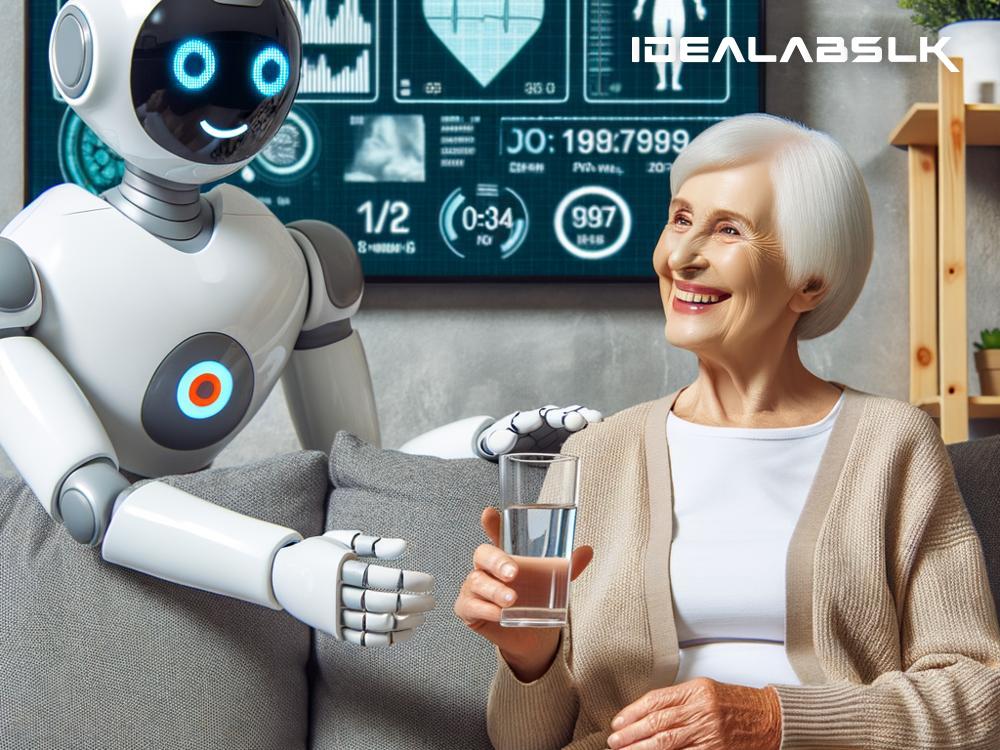How AI and Robotics Are Transforming Elderly Care: Bringing Personalized Healthcare Home
In a rapidly aging world, the pressure on healthcare systems and caregivers to provide comprehensive support to the elderly is significant. However, the emergence of AI (Artificial Intelligence) and robotics is revolutionizing how we think about and deliver elderly care. These advanced technologies are paving the way for more personalized, efficient, and effective healthcare solutions right at home. Let's dive into how this transformation is taking place and what it means for our aging loved ones.
The Struggle with Traditional Elderly Care
Caring for the elderly, especially those with chronic conditions or mobility issues, has long been a challenge. Traditional care solutions often involve human caregivers or assisted living facilities, which while effective, have limitations. Caregivers can become overwhelmed, and institutional care can feel impersonal. Moreover, many elderly individuals prefer to age in the comfort of their own homes, maintaining their independence for as long as possible. This is where AI and robotics step in, offering innovative solutions that cater to these preferences.
AI and Robotics: The New Caregivers on the Block
Imagine a world where technology takes on the role of a personalized caregiver, always available and responsive to the unique needs of each individual. This is not a far-off dream but a rapidly evolving reality. Here's a look at how AI and robotics are making this possible:
1. Robotic Companions
Robots designed as companions can provide social interaction and monitor health. These aren’t cold, metal machines; many are designed with a friendly appearance, capable of simple conversations, reminding the elderly to take their medications, or even leading them in light physical exercises. Such companions can alleviate feelings of loneliness and help keep their users active.
2. AI-Powered Health Monitors
Wearable devices and home sensors equipped with AI can track a wide range of health metrics in real-time, such as heart rate, sleep patterns, and activity levels. This continual monitoring allows for a proactive approach to healthcare, with the ability to detect potential health issues before they become serious. Alerts can be sent to family members or healthcare providers if the AI detects something amiss, ensuring timely intervention.
3. Smart Home Technologies
From voice-activated devices that control lighting, temperature, and security, to AI-driven interfaces that can predict the needs of their users based on daily habits, smart home technologies are making it safer and easier for the elderly to continue living independently. They can ask virtual assistants to remind them of appointments, play their favorite music, or even contact loved ones, making daily life both simpler and richer.
4. Mobility Assistance Robots
For those with mobility issues, robots can offer a helping hand — literally. These robots assist with moving from bed to chair, navigating the home, or carrying objects. They reduce the risk of falls and help the elderly maintain their independence in moving around their homes.
The Benefits of AI and Robotics in Elderly Care
The integration of AI and robotics into elderly care brings numerous benefits, including:
- Personalized Care: AI systems can analyze an individual’s health data to provide customized advice, monitor medication schedules, and adjust care plans in real-time.
- Continuous Support: Unlike human caregivers who need breaks, technological solutions are available 24/7, offering consistent monitoring and assistance.
- Independence: These technologies enable the elderly to maintain their independence for longer, providing them with the tools to manage their own care in the comfort of their home.
- Peace of Mind: For family members, knowing that their loved ones are being monitored and supported round-the-clock provides invaluable peace of mind.
Looking Ahead
As AI and robotics technologies continue to advance, the potential for even more innovative solutions in elderly care is immense. From AI-driven diagnostics to even more intuitive companion robots, the focus is on creating a future where the elderly can enjoy a high quality of life, supported by personalized, compassionate care technology.
While challenges such as accessibility, privacy, and ensuring the human touch remains integral to care are important considerations, the path forward is clear. AI and robotics are not just assisting in elderly care; they are redefining it, offering a blend of independence and care that promises to transform the golden years into some of the best years for our aging population.

